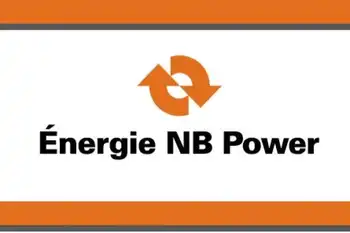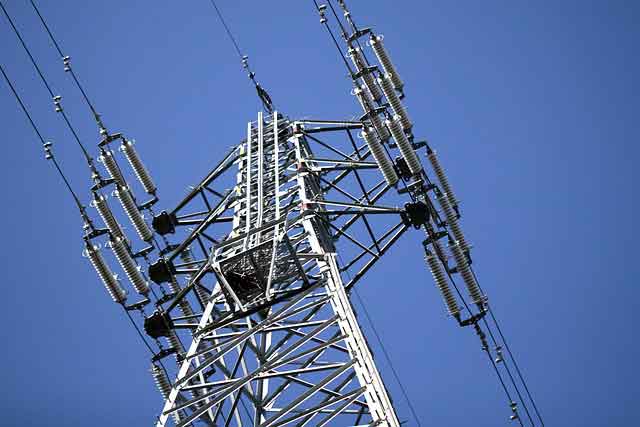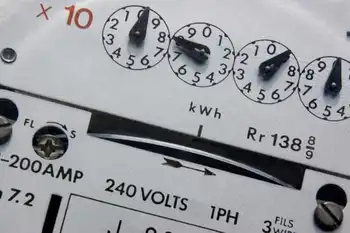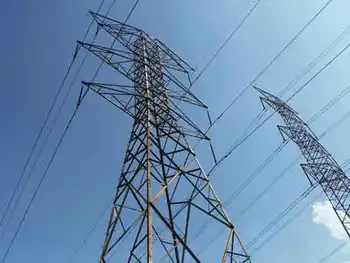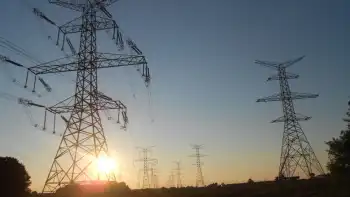NB Power eCharge Network expands EV charging in New Brunswick with fast chargers, level 2 stations, Trans-Canada Highway coverage, and green infrastructure, enabling worry-free electric vehicle travel and lower emissions across the province.
Key Points
NB Power eCharge Network is a provincewide EV charging system with fast and level 2 stations for reliable travel.
✅ 15 fast-charging sites on Trans-Canada and northern New Brunswick
✅ Level 2 stations at highways, municipalities, and businesses
✅ 20-30 minute DC fast charging; cut emissions ~80% and fuel ~75%
NB Power announced Friday the eCharge Network, the province’s first electric vehicle charging network aimed at giving drivers worry-free travel everywhere in the province.
The network includes 15 locations along the province’s busiest highways where both fast-chargers and level-2 chargers will be available. In addition, nine level-2 chargers are already located at participating municipalities and businesses throughout the province. The new locations will be installed by the end of 2017.
NB Power is working with public and private partners to add to the network to enable electric vehicle owners to drive with confidence and to encourage others to make the switch from gas to electric vehicles, supported by a provincial rebate program now available.
“We are incredibly proud to offer our customers and visitors to New Brunswick convenient charging with the launch of our eCharge Network,” said Gaëtan Thomas, president and CEO of NB Power. “Our goal is to make it easy for owners of electric vehicles to drive wherever they choose in New Brunswick, and to encourage more drivers to consider an electric vehicle for their next purchase.”
An electric vehicle owner in New Brunswick can shrink their vehicle carbon footprint by about 80 per cent while reducing their fuel-related costs by about 75 per cent, according to NB Power, and broader grid benefits are being explored through Nova Scotia's vehicle-to-grid pilot across the region.
In addition to the network of standard charging stations, the eCharge network will also include 400 volt fast-charging stations along the Trans-Canada Highway and in the northern parts of New Brunswick. The first of their kind in New Brunswick, these 15 fast-charging stations, similar to Newfoundland and Labrador's newly completed fast-charging network connecting communities, will enable all-electric vehicles to recharge in as little as 20 to 30 minutes. Fast-charge sites will include standard level-2 stations for both battery electric vehicles and plug-in hybrids.
NB Power will install fast-charge and level-2 sites at five locations throughout northern New Brunswick, addressing northern coverage challenges seen elsewhere, such as Labrador's infrastructure gaps today, which will be cost-shared with government. Locations include the areas of Saint-Quentin/Kedgwick, Campbellton, Bathurst, Tracadie, and Miramichi.
“Our government understands that embracing the green economy and reducing our carbon footprint is a priority for New Brunswickers,” said Environment and Local Government Minister Serge Rousselle. “Our climate change action plan calls for a collaborative approach to creating the strategic infrastructure to support electric vehicles throughout all regions in the province, and we are pleased to see this important step underway. New Brunswickers will now have the necessary network to adopt new methods of transportation and contribute to our provincial plan to increase the number of electric vehicles on the road and will help meet emission reduction targets as we work to combat climate change.”
An investment of $500,000 from Natural Resources Canada will go towards purchasing and installing the charging stations for the 10 fast-charging stations along the Trans-Canada Highway.
“The eCharge Network will make it easier for Canadians to choose cleaner options and helps put New Brunswick’s transportation system on a path to a lower-carbon future,” said Moncton-Riverview-Dieppe MP Ginette Petitpas Taylor. “The Government of Canada continues to support green infrastructure in the transportation sector that will advance Canada’s efforts to build a clean economy, create well-paying jobs, and achieve our climate change goals.”
Petitpas Taylor attended for federal Natural Resources Minister Jim Carr.
Fast chargers are being installed at the following locations along the Trans-Canada Highway across New Brunswick:
– Irving Big Stop, Aulac
– Edmundston Truck Stop
– Irving Big Stop, Saint-André
– Johnson Guardian, Perth-Andover
– Murray’s Irving, Woodstock
– Petro-Canada / Acorn Restaurant, Prince William
– Irving Big Stop, Waasis
Related News






